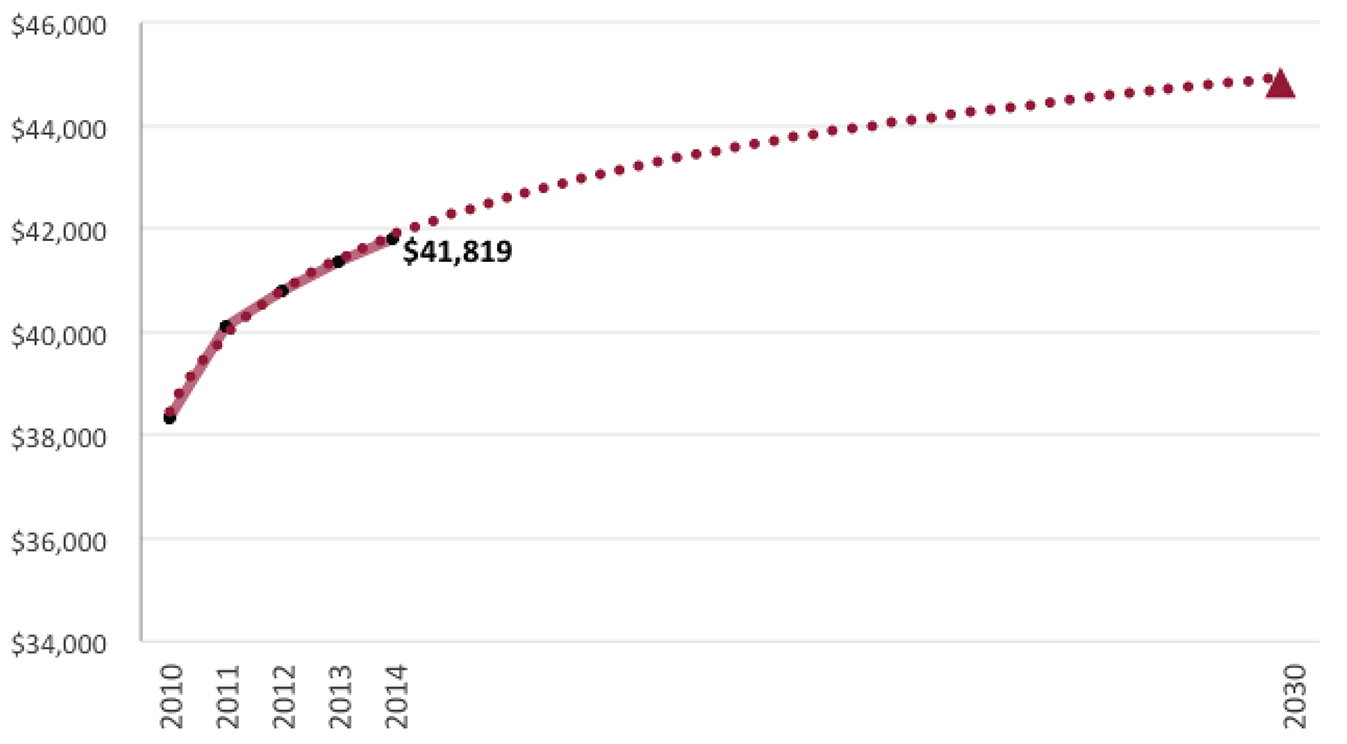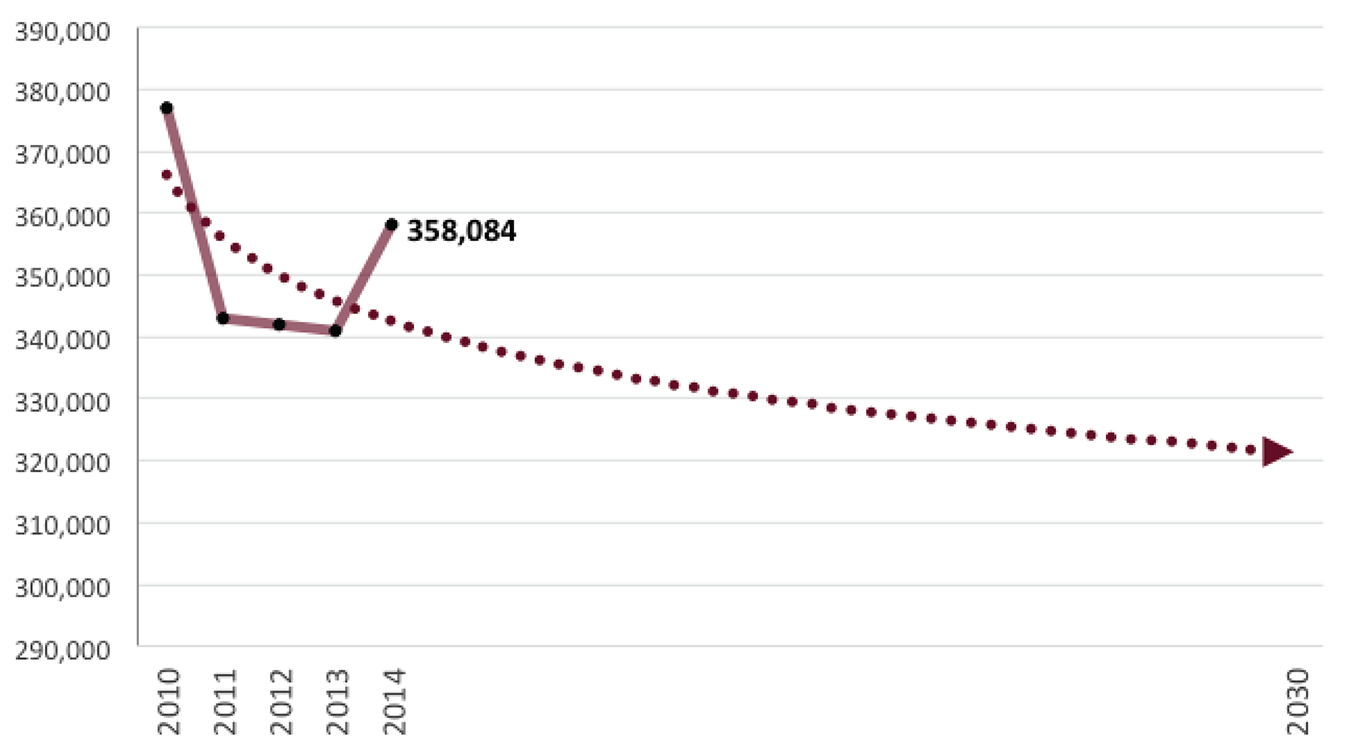For the United Nations Sustainable Cities Initiative, Goal #8 is decent work and economic growth.
For Baltimore, the indicators identified by the University of Baltimore to date for this goal are as follows:
Median Household Income, in 2014 Inflation Adjusted Dollars
The median household income is the middle value of the incomes earned by households within an area for the prior year. The median value is used as opposed to the average so that both extremely high and extremely low prices do not distort the total amount of income earned by households in an area.

Labor Force Participation
The number of persons who are in the labor force out of all persons between the ages of 16 and 64 in the area. There are several reasons why persons may not be included in the labor force. These reasons may include: they are caretakers for children or other family members; they attend school or job training; they may have a disability; and they are discouraged or frustrated and have given up seeking a job or have a history that may include criminal activity.

Percentage of Residents Earning a Living Wage
A living wage is the hourly wage a wage that is high enough to maintain a normal standard of living. The living wage for a single adult in Baltimore is $12.33.
[ Data for Baltimore to be calculated ]
Total Number of Jobs
This indicator is calculated as the total number of employees in Baltimore City.
Tell us what you think about these indicators! Take the survey for Goal #8.
Goal 8 Global Targets
8.1 Sustain per capita economic growth in accordance with national circumstances, (and in particular at least 7% per annum GDP growth in the LDCs).
8.2 Achieve higher levels of economic productivity through diversification, technological upgrading and innovation, including through a focus on high-value-added and labour-intensive sectors.
8.3 Promote development-oriented policies that support productive activities, decent job creation, entrepreneurship, creativity and innovation, and encourage the formalization and growth of micro-, small- and medium-sized enterprises, including through access to financial services.
8.4 Improve progressively, through 2030, global resource efficiency in consumption and production and endeavour to decouple economic growth from environmental degradation, in accordance with the 10-year framework of programmes on sustainable consumption and production, with developed countries taking the lead.
8.5 By 2030, achieve full and productive employment and decent work for all women and men, including for young people and persons with disabilities, and equal pay for work of equal value.
8.6 By 2020, substantially reduce the proportion of youth not in employment, education or training.
8.7 Take immediate and effective measures to eradicate forced labour, end modern slavery and human trafficking and secure the prohibition and elimination of the worst forms of child labour, including recruitment and use of child soldiers, and by 2025 end child labour in all its forms.
8.8 Protect labour rights and promote safe and secure working environments for all workers, including migrant workers, in particular women migrants, and those in precarious employment.
8.9 By 2030, devise and implement policies to promote sustainable tourism that creates jobs and promotes local culture and products.
8.10 Strengthen the capacity of domestic financial institutions to encourage and expand access to banking, insurance and financial services for all.
Learn more about this goal via the United Nations.


